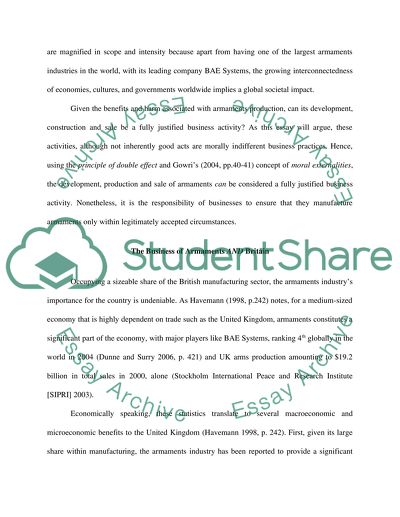Cite this document
(“Ethics within the British armaments industry Essay”, n.d.)
Ethics within the British armaments industry Essay. Retrieved from https://studentshare.org/miscellaneous/1510392-ethics-within-the-british-armaments-industry
Ethics within the British armaments industry Essay. Retrieved from https://studentshare.org/miscellaneous/1510392-ethics-within-the-british-armaments-industry
(Ethics Within the British Armaments Industry Essay)
Ethics Within the British Armaments Industry Essay. https://studentshare.org/miscellaneous/1510392-ethics-within-the-british-armaments-industry.
Ethics Within the British Armaments Industry Essay. https://studentshare.org/miscellaneous/1510392-ethics-within-the-british-armaments-industry.
“Ethics Within the British Armaments Industry Essay”, n.d. https://studentshare.org/miscellaneous/1510392-ethics-within-the-british-armaments-industry.


